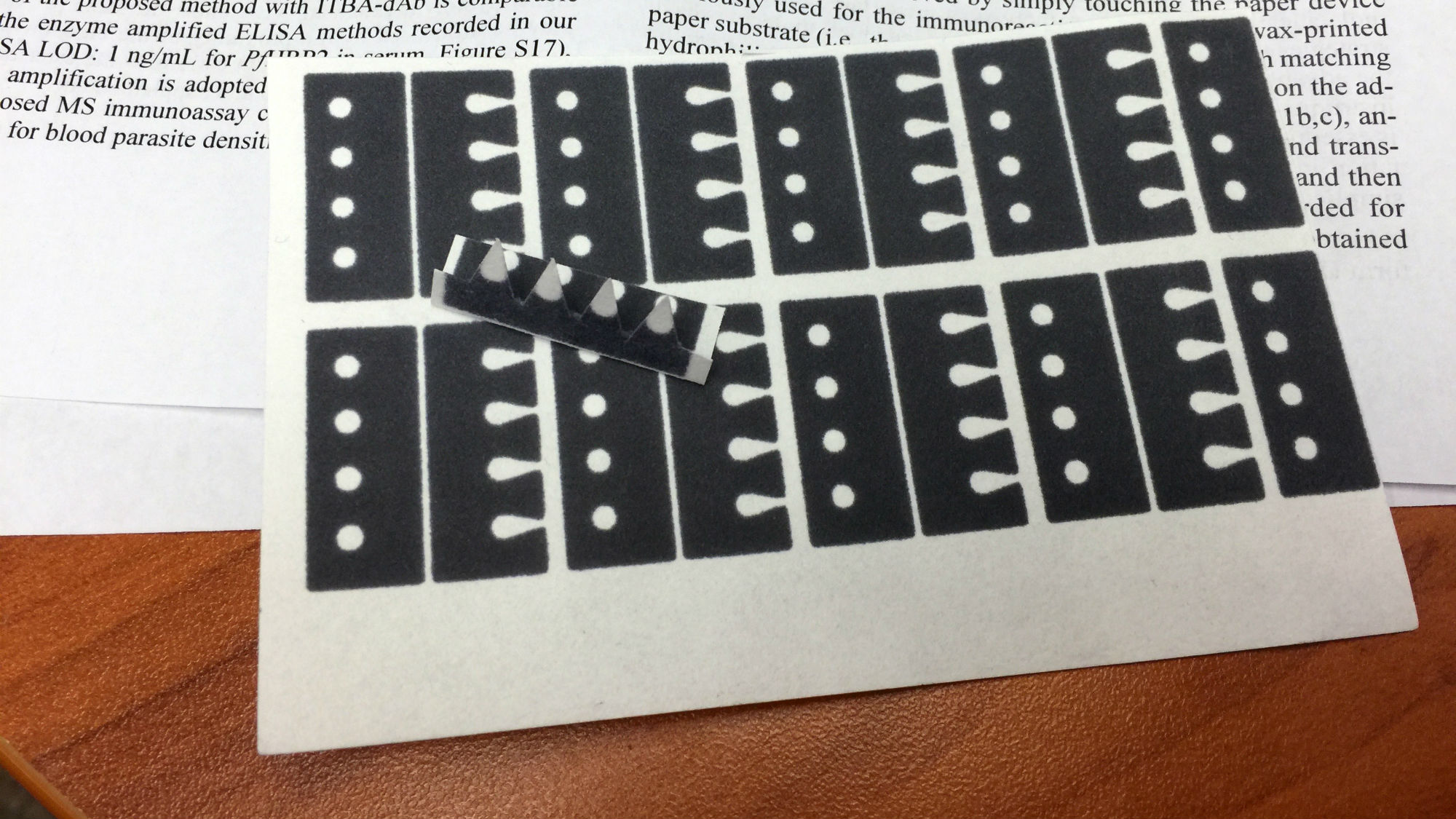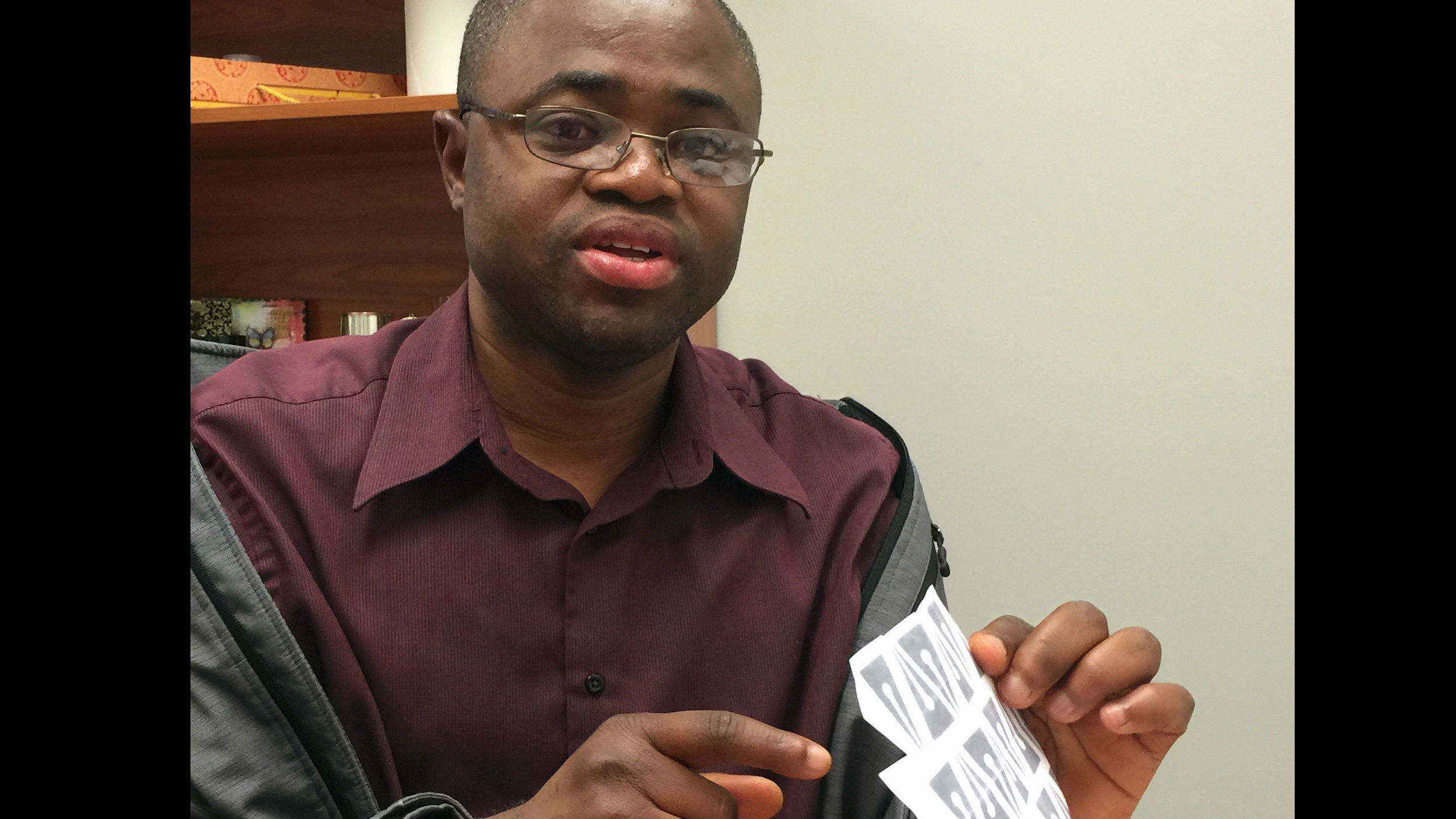Malaria – one of the major health problems in Africa, Southeast Asia and some other regions. Only in 2015 it was recorded about 214 million cases worldwide. 438,000 cases have died and mostly children in Africa.
Associate Professor at the University of Ohio Abraham Badu-Tavia (Abraham Badu-Tawiah), being aware of this situation, would take a decision at all costs to find a simple way to malaria diagnosis and other diseases. This solution is necessary for remote settlements, of which up to the nearest hospital can get weeks.
The main idea is that people can put a drop of blood on the paper and send it to the laboratory for diagnosis and consult your doctor only if detected any disease.
Already patented technology described in the publication of the article Journal of the American Chemical Society, recalls actively developing technique “lab on a chip”. Instead of plastic used in this case is the plain paper glued between a bilateral adhesive tape and passed through a conventional inkjet printer. That’s only the ink in the printer are not ordinary, and wax.
In the end, after printing on paper formed canals and reservoirs with watertight circuits that allow to capture and hold the drop of blood between the layers. On a normal A4 sheet can fit dozens of individual tests slightly larger than a postage stamp. It remains only to cut them and use them for other purposes
“In order to pass the test, a person is enough to leave a drop of blood on a strip of paper, fold it in half, put in an envelope and mail” -. Said Badu-Tavia in a university news release.
it should be noted that the actions of the new test principle is different from the already familiar tests for blood sugar, and pregnancy, which use enzymes or gold nanoparticles to modify the color of the media. Instead, the new paper strip has a small synthetic chemical probes that carry a positive charge. These ultrasensitive “ion probes” let you check the test strips with a portable mass spectrometer.
Each ion probe captures from the blood of a specific biomarker of the disease. When this happens, all obtained in the course of the last chemical reaction compounds remain unchanged for at least 30 days (which is more than enough to travel in a remote laboratory).
The system remains stable under the influence of the standard environmental conditions environment – light, temperature, humidity (even in the African climates). Modern enzymatic tests is not even dreamed of, the developers of new items. They are extremely picky and require strict compliance with the storage conditions.

The first tests have shown the ability to effectively detect a biomarker of the most common malaria parasite – plasmodium falciparum (plasmodium falciparum). In addition, using the new test have been successfully detected and cancer biomarkers -. Antigen 125, indicative of ovarian cancer and carcinoembryonic antigen issuing colon cancer
The reliability of the new diagnostic system opens up a new world of health care, not only in third world countries, but also in any other. Going to the doctor often requires not only time, but also a serious financial costs, for example, in the United States. In particular, people with cancer in remission, must pass tests to monitor their status at least once a month. If they will be able to conduct tests and send them to a laboratory by mail, the control can be carried out more often.
The cost of one test strip in Ohio may be only 50 cents, and the mass production of its only reduce the price. The biggest cost will have to incur laboratories. Portable mass spectrometer is currently about 100 thousand US dollars (about 6.5 million rubles at the current rate). However, now is actively working out cheaper and compact model that can be installed anywhere.
However, such costs are justified and are a potential boon for the African economy, where malaria annually collects from the budgets of $ 12 countries billion due to loss of working capacity of the population.

Now the Ohio University plans to license a new technology for medical diagnostics. The developers hope that clinical trials will take place in the next three years. In addition, researchers are working to expand the list of defined diseases, and plan to make its non-invasive tests, that is, to allow for their use was enough saliva, or urine.
No comments:
Post a Comment